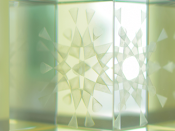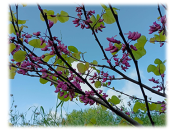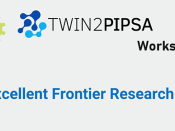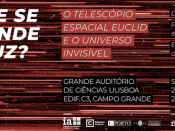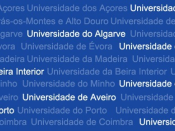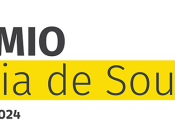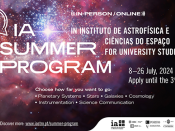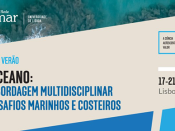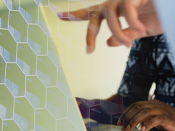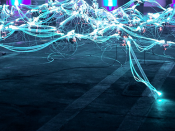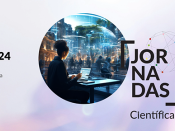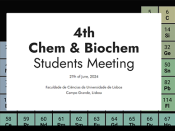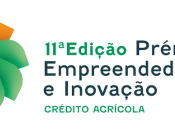Por Julian Oberdisse (Laboratoire Charles Coulomb - L2C, University of Montpellier, CNRS, France).
Small-angle (neutron) scattering is the perfect tool to study the average conformation of macromolecules in about any environment, from solvents to other polymer molecules. Microgel particles with different compartments, like core-shell microgels, combined with isotopic substitution highlighting one or the other part, are particularly well-suited for such investigations. The application of models, however, is both necessary and possibly introducing bias in the analysis.
In this presentation, after a (hopefully didactical) introduction, we will investigate the internal structure of core-shell microgel particles in suspension. The latter combine two different VPTTs, and are arranged in such a way that a linear swelling is observed between the two temperatures [1]. We have revisited their structure in the case of relatively small particles, in order to have the full picture available in the accessible q-range [2]. Using selective deuteration, core- and shell monomers could be measured independently, and the corresponding monomer profile described by a reverse Monte Carlo approach. It turns out that the expected profile, core monomers in the core and shell monomers outside, is not found [3]. The outcome of the reverse Monte Carlo algorithm provides a new picture of the local microstructure, incidentally also proposing an explanation for the linear swelling properties. If time allows, I will finish with a presentation of a structureless structure (which should not exist…) [4].
References:
[1] M. Zeiser, I. Freudensprung, T. Hellweg, Polymer, 2012, 53, 5995-6124
[2] M. Cors, L. Wiehemeier, Y. Hertle, A. Feoktystov, F. Cousin, T. Hellweg, and J. Oberdisse, Langmuir 2018, 34(50), 15403-15415
[3] M. Cors, O. Wrede, L. Wiehemeier, A. Feoktystov, F. Cousin, T. Hellweg, J. Oberdisse, Scientific Reports 2019, 9, 13812.
[4] A. C. Genix and J. Oberdisse, EPJE 2023, 46(6), 46 (highlight, on the occasion of the 50th birthday of D11)





